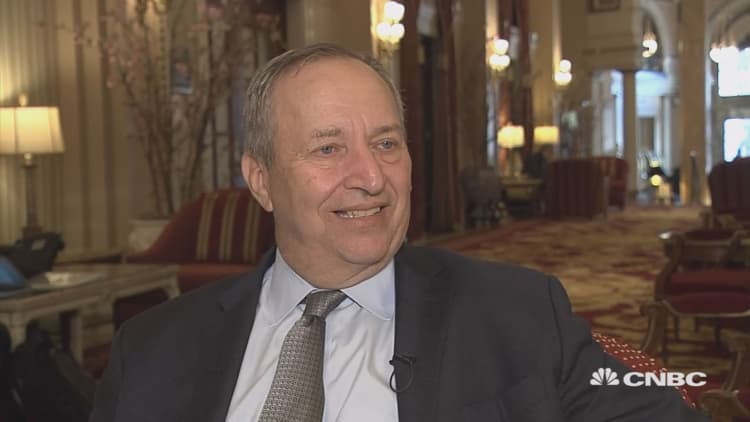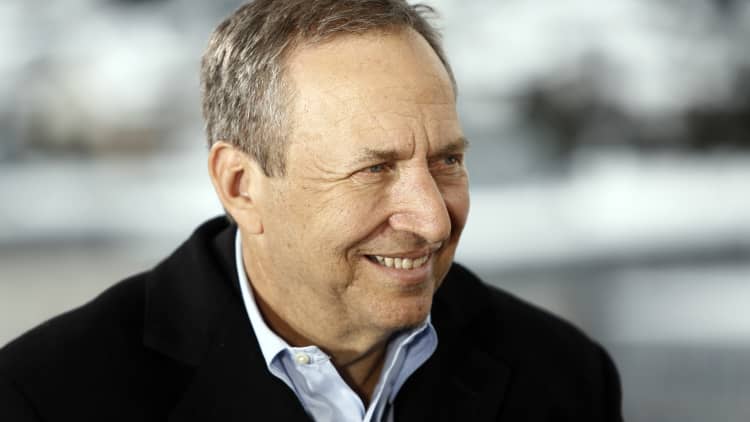Amazon should not be punished by the Trump administration for being an effective retailer, former Obama administration economic advisor Larry Summers said Friday.
"I don't think that growing by providing products at low cost is [a] monopoly," the former Treasury secretary told CNBC's Sara Eisen in an interview from the spring meetings of the IMF and World Bank in Washington. "Amazon is just being a really effective retailer. That is not a reason for antitrust."
"But of course, if they're pursuing anti-competitive practices" such as "denying suppliers the right to supply to them" that should be investigated, added Summers, an ardent critic of President Donald Trump.

Trump has repeatedly slammed Amazon, attacking the company five times in one recent week, claiming the company has ripped off the U.S. Postal Service and said it doesn't pay enough taxes. However, some say the e-commerce giant, whose CEO, Jeff Bezos, also owns The Washington Post, is actually good for the Postal Service, which has suffered from bleak finances in the digital age.
Summers, who ran the Treasury during Bill Clinton's presidency and was director of the National Economic Council under former President Barack Obama, said there certainly is a major concern inside Washington about big tech companies avoiding taxes.
Lawmakers should also do more to police tech companies on handling personal data, Summers said. Facebook came under fire over its privacy practices in the wake of revelations that Cambridge Analytica improperly gained access to data from some 87 million user profiles, then used it to target political ads.
"That certainly should be an object of study by those concerned," contended Summers, who in the past had served as president of Harvard University. "I think wherever there is big data, there are legitimate concerns about privacy and dissemination of that data and the public policy is lagging behind in that area."
"[But] it's really dangerous for there to be a world where businesses feel they have to stay on the right side of the president of the United States where he will use the awesome powers of the U.S. government to retaliate," Summers said. He also recently called into question the president's steel and aluminum tariffs and expressed doubts about Trump's policy efforts to boost the U.S. economy.
WATCH: Summers on Trump's 'zero-sum' approach to global relations



